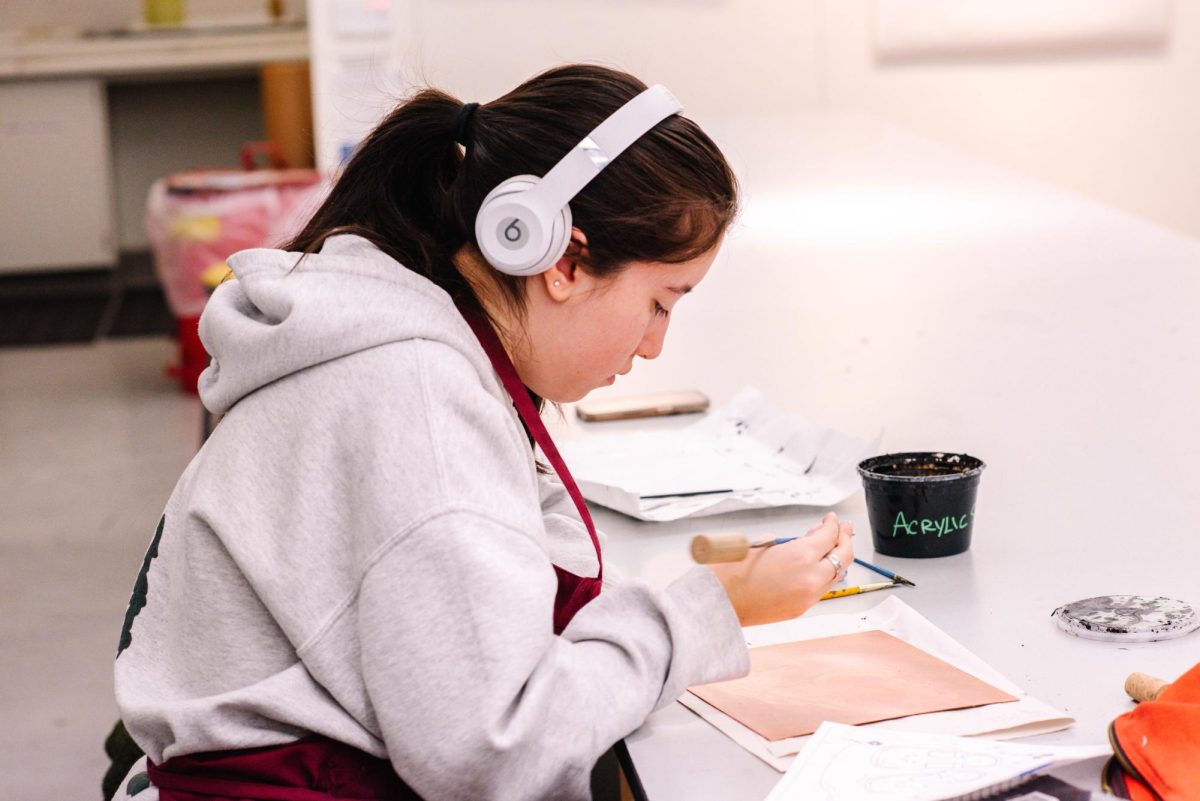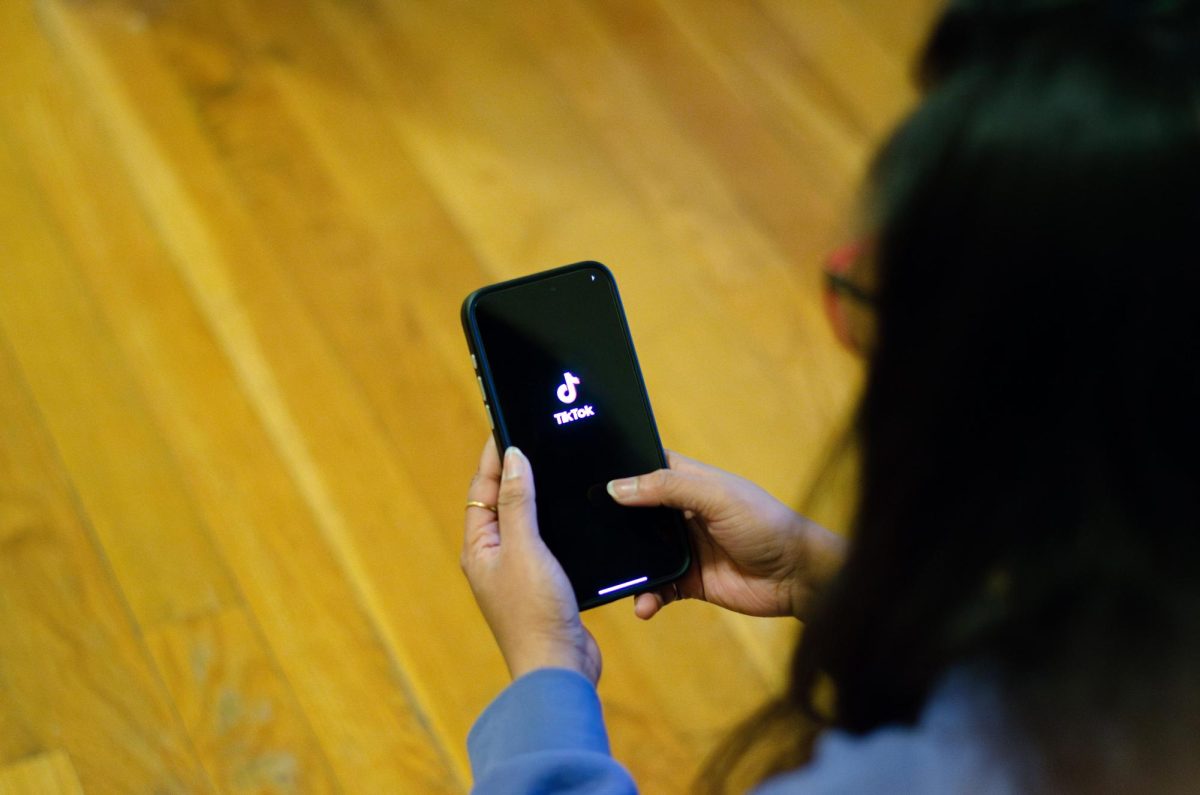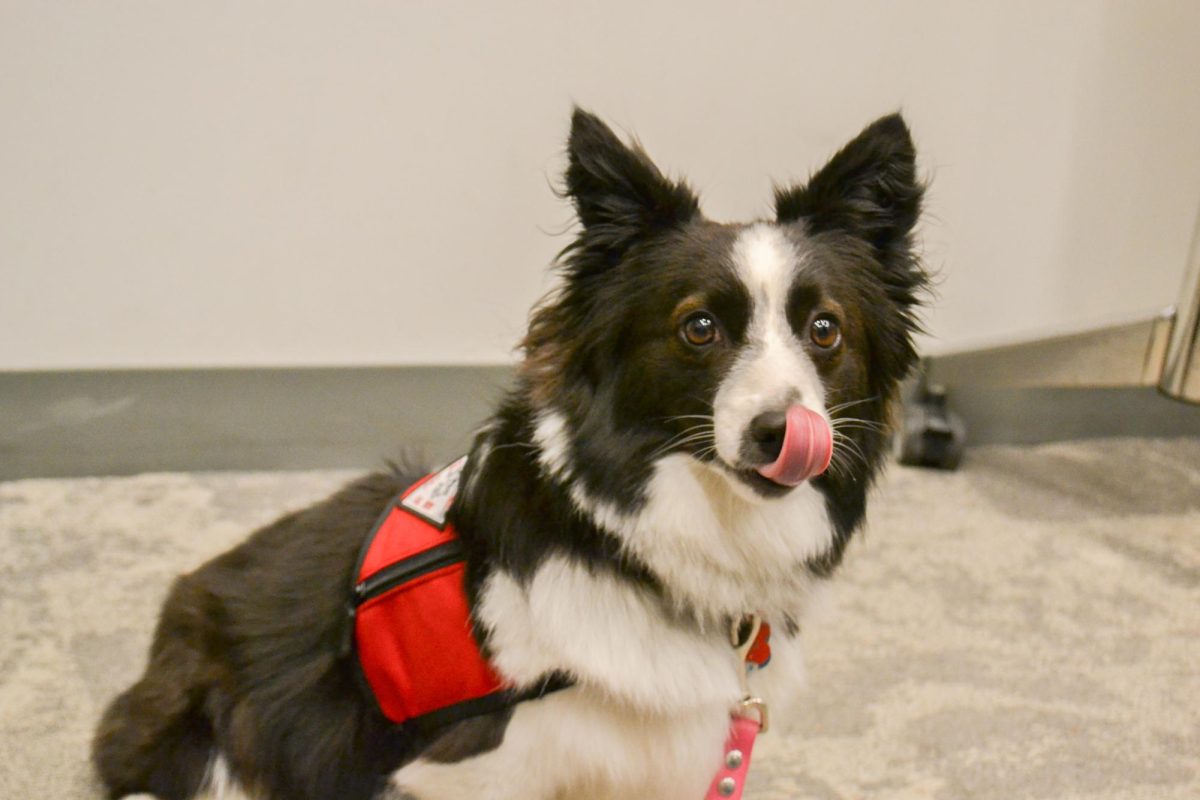The first weekend of September injected activity back onto campus, as top hits flowed from speakers around the Motley Residence Halls while on-campus residents moved in. Smiling faces in blue shirts helped students as they pushed big blue bins and settled in. After the first few days, the students in each hall met during their first floor meeting and began to create a community. The meeting was an introduction to a key member of their semester, their Resident Assistant.
Before it all started, on Aug. 31, returning RA Diane Pierre sat down to talk all about duties in the Motley Residence Halls, how her major in Exercise and Health Science intersects with her role and most importantly, how RAs are a resource for students.
There are a total of 31 RAs, each of whom focuses on the community of around 30 to 40 people who live in their hall. They usually act as coordinators and a key resource for the students who may be living on their own for the first time.
This year, Diane is the RA for the Green Hallway of the seventh floor in the East Hall. She will be checking on 37 residents, which is less than she had last year. She noted that having fewer residents will make her experience more interesting and manageable, since she will have more time to focus on each of them.
“I want to be a Physician Associate. That role is very people oriented; I’m gonna be taking care of people a lot. Even though being an RA is a little bit different from that, I feel like I am in a role where people look to me for help and resources,” Pierre noted.
She began the year creating door tags for her residents and making a “get to know me” board. During the semester, RAs are asked to host programs for their residents, which can range from social events like a paint night or more academic events like sharing time management tips while using Outlook calendar. Sometimes, RAs collaborate amongst themselves to expand the community, hosting a movie or game night. No matter the program, they usually center in helping residents get to know each other and relax from their schoolwork.
Pierre’s favorite program was one she coordinated with two other RAs before finals week last spring. They brought three therapy dogs and set them up in rooms so students could pet them and play with them.
“That was one of the most successful programs I’ve ever had, there was a huge turn out and it was so much fun,” Pierre said.
Along with this, RAs need to complete duty shifts, which are 24 hours on weekends or 12 hours on weekdays. During these shifts, they are the first to respond to an emergency or the ones who come to let students in their rooms if they lock themselves out. Although this may seem like a lengthy shift, it is a manageable commitment since they spread out the obligation. For instance, Diane’s first shift isn’t scheduled until October.
On the other hand, all 31 RAs split into three teams that focus on hosting one seasonal event for both buildings per semester. This year, Diane’s team will be working on a winter carnival. Last year, the winter event was composed of a gingerbread house decorating contest, pillow making and a DIY snow globe.
Although these events create a fun atmosphere, students may still struggle when they face the realities of being on their own. They must determine times in their schedules to eat, sleep and study—and ensure these don’t run over each other. Similarly, they will need to understand how to do laundry and live with their roommates.
RAs play an essential role in the development of the residents’ wellbeing, since, at the most basic level, they are just experienced college students. They have had to make their own routines to take care of themselves. So, students living on-campus can lean on their experience and ask for recommendations on what to eat, how to do laundry or how to deal with roommates.
Reflecting on her experiences connecting with her past residents Pierre noted, “It can be difficult to connect with your residents, since it depends on how much they want to connect with you. First-year college students are usually to themselves, so I make it a point to introduce myself, let them know what the role of an RA is, how to reach me if they need something.”
Beyond just being college students, Resident Assistants receive sturdy training from the Office of Residential Life and other offices around campus.
“They tell us about many resources that I feel like many people don’t know about. Resources that could be helpful to a lot of students,” said Pierre.
For example, U-ACCESS provides groceries, toiletries and even help with taxes, while the Tutoring Center provides student support in most 100 and 200 level classes. Some RAs also hold positions as tutors themselves! Even when students are just interested in being more involved on campus, RAs know how to connect them to UMass Boston clubs and organizations. So, when students feel like they need extra support, having a conversation with their RA may be the best first step.
“If you have a problem and you think maybe there is not going to be resource for that, double check. Because nine times out of ten, there will be a resource for that.” Pierre said with a smile.
For students interested in becoming an RA Pierre noted that “training could make it seem like the job is overwhelming, but it isn’t. It’s a lot of fun, collaborating with other RAs, holding your own programs, or going to other RAs programs, and you are never alone. There are other 30 RAs and many members of the staff who you can ask and lean for help.”
Students are not required to have lived in the residence halls prior to being an RA. However, they must have a minimum GPA of 2.5 and they must be full-time students.
Reflecting on her experience, Pierre noted the RAs have a very supportive community. Last year, when she was a new member of the Residence Halls, recent UMass Boston graduate and former RA Carolina Ramirez was a big force of togetherness.
“She would always try to help everybody felt included, along with the other RAs always made it a point to sit with us during dinner and talk to us.”



















































